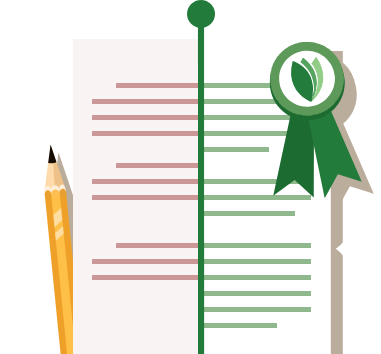Johns Hopkins University, located in Baltimore, MD, is renowned for its research advancements in the biomedical sciences, as well as for being America’s first research university. From its 19th-century Maryland Quaker origins to its present-day impact on the global stage, Johns Hopkins has remained a prestigious educational institution. For applicants seeking admission to Johns Hopkins, the supplemental essay prompt can feel intimidating, but it doesn’t have to be. Let’s break it down.

Johns Hopkins’s 2025-2026 Prompts
- Over the past 150 years, every monumental discovery at Hopkins has started with a first step: The first draft by a Pulitzer Prize-winning author. A prototype that led to a life-changing medical invention. The first pitch that launched a new startup venture. As we commemorate the university’s sesquicentennial—150 years since its founding—we continue to celebrate first steps just as much as final achievements. Tell us about an important first in your life—big or small—that has shaped you. (350 words or fewer)

General Tips
When brainstorming essay topics, you may want to start with identifying any gaps in your application (in context). If your Common App essay, teacher recommendation letters, and other application materials all emphasize certain aspects your academic or personal background while neglecting other elements, your supplemental essay(s) can be a great place to fill in the blanks. For instance, if your cultural background isn’t explored anywhere else in your application, this supplemental essay might be the best place to dive into it.
That said, you don’t want to force a topic in where it doesn’t otherwise belong. Thus, make sure that whatever topics you choose for your supplemental essay(s) fits the context of the essays. Your response needs to be directly related to the prompt at hand! Only pursue this strategy if it makes sense for your application and the essay prompt you’re working with. It’s better to be slightly redundant than to miss the point of the prompt.
That said, for this particular prompt, there is no need to be redundant with your Common App personal essay topic. Even if your personal essay discusses your life experience, this essay can (and should) focus on a different aspect of your life experience. Now, let’s dive into the prompt specifically.
Johns Hopkins’s Supplemental Essay Question
Over the past 150 years, every monumental discovery at Hopkins has started with a first step: The first draft by a Pulitzer Prize-winning author. A prototype that led to a life-changing medical invention. The first pitch that launched a new startup venture. As we commemorate the university’s sesquicentennial—150 years since its founding—we continue to celebrate first steps just as much as final achievements. Tell us about an important first in your life—big or small—that has shaped you. (350 words or fewer)
Choosing Your “First”
Your “first” doesn’t need to be extraordinary or award-winning to be compelling. Strong examples include the first time you took initiative by starting a club or reaching out to a mentor, your first encounter with failure and how you responded, your first exposure to a new perspective through a cultural experience or challenging conversation, your first act of independence in making a difficult decision, or your first moment of discovery when you realized a passion or understood a complex concept. The “big or small” qualifier is crucial because sometimes the most mundane firsts reveal the most about character. Avoid choosing firsts that are thinly veiled accomplishments like winning a championship, as admissions officers can easily spot humble brags. Instead, focus on genuine learning moments that demonstrate growth and self-awareness.
Structure and Writing Strategy
Unlike traditional “show don’t tell” advice, this essay benefits from a hybrid narrative approach. Open immediately in the scene of your “first” with vivid, concrete details that place the reader in the moment. Show the experience vividly with sensory details rather than just describing what happened, then transition to reflecting on how this first shaped your perspective, values, or trajectory. Finally, connect this formative experience to who you are today and potentially to your Hopkins aspirations. The most effective essays demonstrate internal change, showing how your thinking or self-understanding shifted as a result of this first experience.
Making the Hopkins Connection
The Hopkins connection is optional but can strengthen your essay when done naturally. If your first experience genuinely sparked an academic interest, shaped your career goals, or developed qualities that align with what you want to pursue at Hopkins, mentioning this connection can help admissions officers understand your fit with the university. However, don’t force a connection if it doesn’t exist naturally—a compelling personal story that demonstrates growth and self-awareness is more valuable than an artificial tie to Hopkins. The prompt primarily asks you to share how a first experience shaped you as a person, so focus on that transformation first and foremost.
Common Pitfalls and Final Tips
Avoid generic firsts like the first day of school or first time driving unless you have a truly unique angle, and don’t feel pressured to choose dramatic events—quiet moments of growth often make more compelling essays. Focus on firsts where you took active roles rather than things that simply happened to you. With only 350 words, every sentence must earn its place, so be precise and vivid in your details and maintain authenticity over trying to impress. End with forward motion by showing how this first continues to influence your decisions or worldview today. Remember that this prompt is fundamentally about personal growth and self-discovery, so your essay should focus on demonstrating how one meaningful first experience contributed to who you are today.
Lastly, don’t forget to check out the webpage for Johns Hopkins essays that worked.
If you need help polishing up your Johns Hopkins supplemental essay, check out our College Essay Review service. You can receive detailed feedback from Ivy League consultants in as little as 24 hours.





